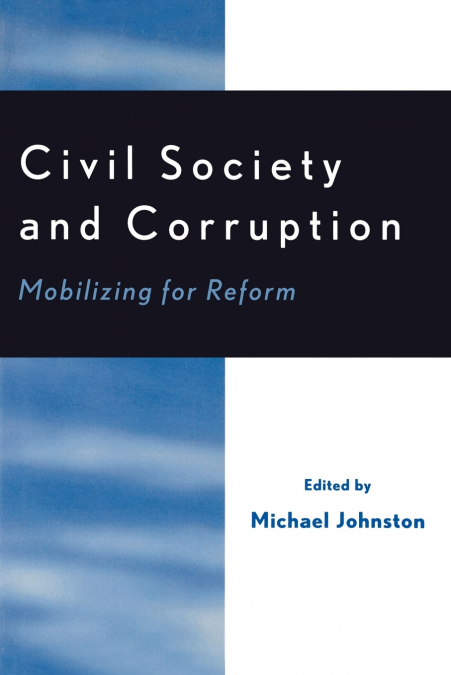
 Librería Perelló (Valencia)
Librería Perelló (Valencia)
 Librería Aciertas (Toledo)
Librería Aciertas (Toledo)
 El AlmaZen del Alquimista (Sevilla)
El AlmaZen del Alquimista (Sevilla)
 Librería Elías (Asturias)
Librería Elías (Asturias)
 Librería Kolima (Madrid)
Librería Kolima (Madrid)
 Donde los libros
Donde los libros
 Librería Proteo (Málaga)
Librería Proteo (Málaga)
Strong civil societies play a major role in controlling corruption in many societies, and reformers agree that citizens, both individual and organized, should be involved in reform. But accomplishing that goal has proven difficult. Some civil societies are weak, divided, and impoverished. In others, undemocratic regimes dominate through intimidation. And in still others, development difficulties, international debt, and misguided aid efforts stop reform before it can begin. Too often, anti-corruption campaigns do not engage social values or attack corruption as people experience it every day. This volume, based on a yearlong series of events sponsored by Colgate University’s Center for Ethics and World Societies, analyzes civil society and corruption from several perspectives and in several parts of the world. One section considers corruption as a fact of everyday life, a second analyzes techniques and incentives involved in mobilizing civil society, and a third provides a unique guide to information resources on corruption and reform.